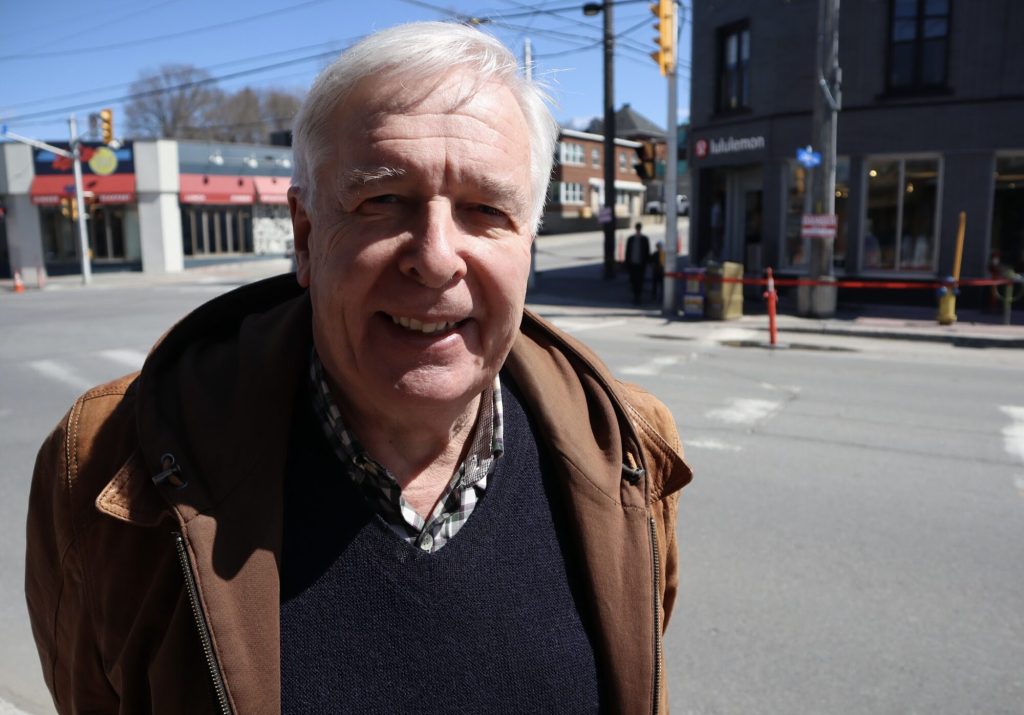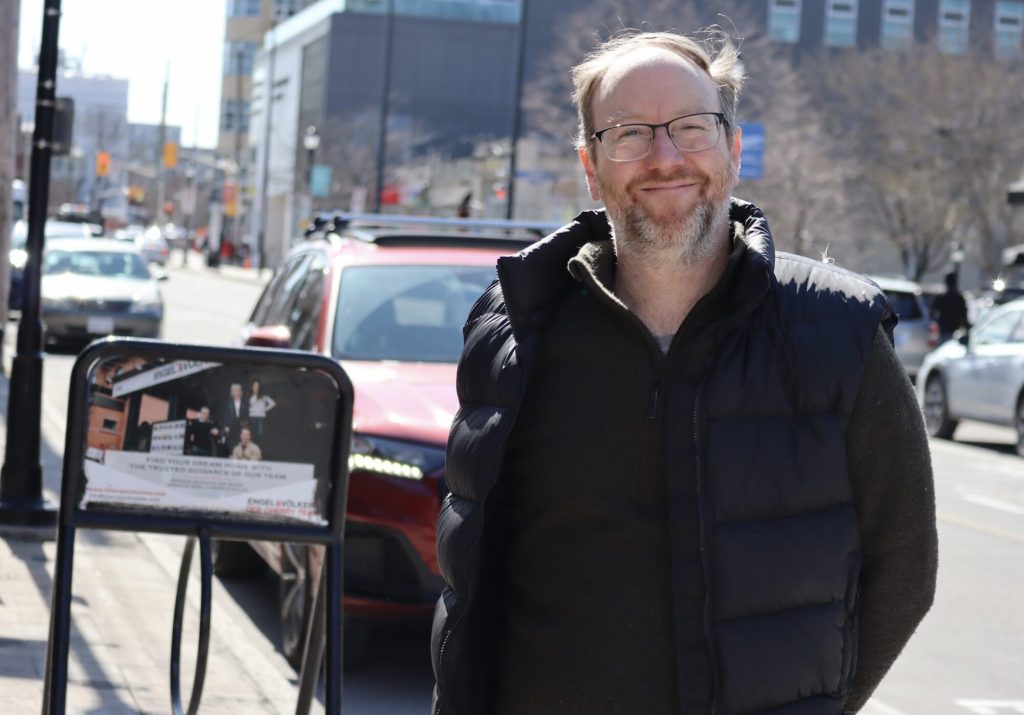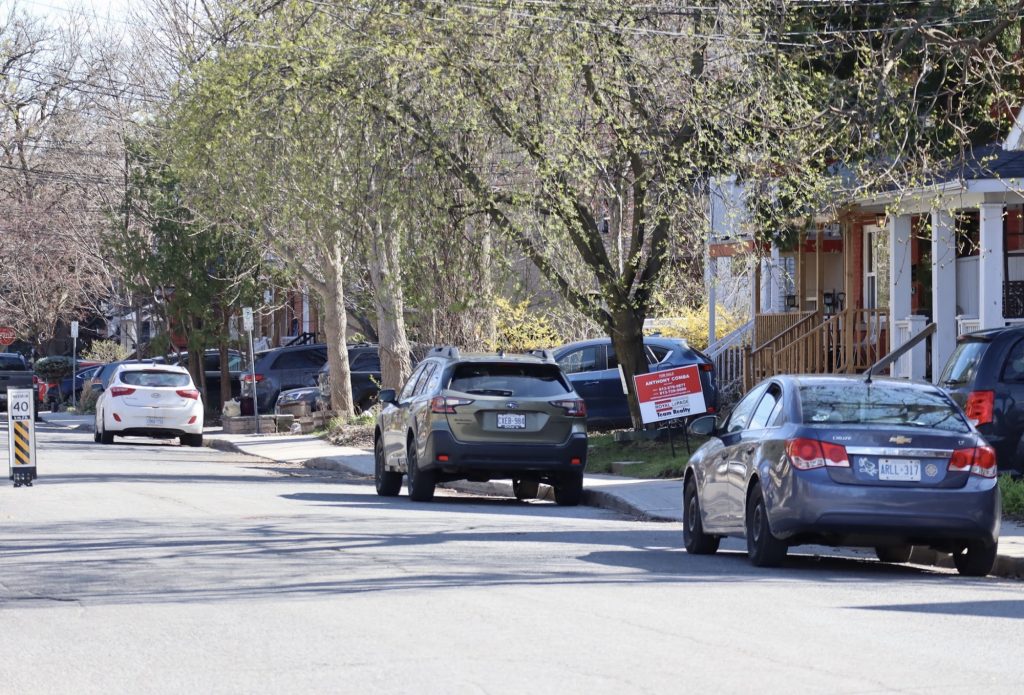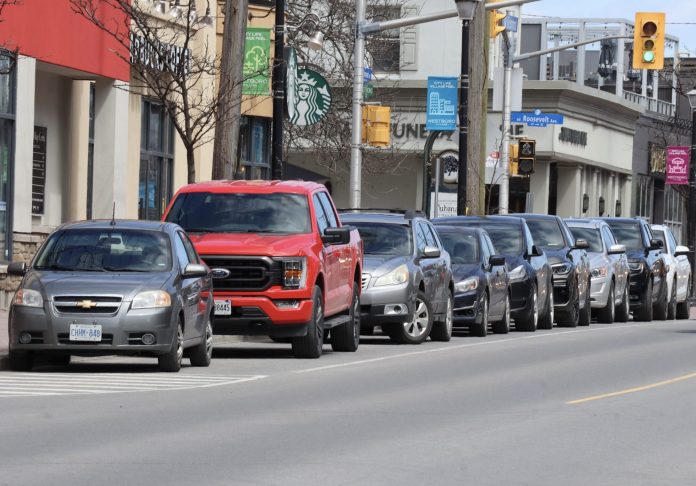The emphasis on improving Ottawa’s active transportation coupled with tough economic pressures has residents clashing over the consequences of implementing paid parking on Westboro and Wellington West’s main streets.
A recent study evaluating parking-related issues in the two communities conducted by the City of Ottawa found that multiple sectors exceeded the practical capacity of 85 percent occupancy in 2023.
The report sought to optimize parking services, promote sustainable and active transportation, and resolve parking-related issues on main streets and in residential areas. Recommendations based on its findings and community consultations will be presented to the Transportation Committee and City Council this summer.
“We are currently engaged in the final stages of the parking study for Kitchissippi ward and it really focuses on commercial streets,” said area Coun. Jeff Leiper. “We’ve had this discussion a couple of times and we are now at the point where the vetoes that stopped paid parking in the last term of council have been eliminated. No one stakeholder has a veto on whether or not paid parking goes in.”
When a similar parking study took place in 2015, residents demanded that the City keep the meters off Kitchissippi streets. The minimal on-street parking during the pandemic shelved the debate again, but as parking patterns have returned to pre-pandemic levels, Leiper said the only way to manage is by introducing new fees.
The Westboro Village BIA supports paid parking because it can create turnover and create more flexible time limits than the current restriction of 90 minutes, said its executive director Judy Lincoln.
This is common along many commercial areas like Preston St, Montreal Rd, and Bank St. Leiper said it’s no longer a question of whether paid parking will be approved, but what the rates and pay periods would be.
The city has had a tough few years financially, but the Kitchissippi ward representative said paid parking is not a cash grab but rather an “efficient management of our parking supply.”
Divided opinions
Despite Leiper’s inclination toward this solution, Kitchissippi businesses and community associations don’t see the need.
“Based on my staff’s ability to find parking, and my ability, and talking to the membership, there aren’t a ton of issues here. I know that based on the parking department studies and talking to the public, not many people in our area can’t find parking,” said Devon Armstrong, interim executive director of the Wellington West BIA. “When you look at the Kitchissippi ward as a whole, that changes because Westboro is much more congested.”
Armstrong’s BIA is against higher turnover rates that a levy would promote because they want to work as a cluster, encouraging patrons to visit multiple shops during their visit.
Businesses in the area have faced a turbulent few years because of the pandemic. Stella Luna declared bankruptcy of its Wellington West store earlier this year, and in December, the popular Won Ton House restaurant closed after being in the community since the 1970s. Herb & Spice grocery store served its last customers in July after finding it difficult to compete with the large retailers. In neighboring Westboro, West End Kids declared bankruptcy after owing creditors about $900,000.

There are now concerns over how paid parking could further deter business.
“[We are] firmly of the view that the current arrangement underpins and nourishes the commercial establishments that line these streets and give the various neighbourhoods the ‘village’ flavour that is so greatly appreciated by the locals and visitors alike,” wrote Westboro community association member David Morgan in an email.
Matt Whitehead, chair of the Hintonburg Community Association’s transportation committee, said the Wellington West strip resembles a 15-minute city where people can walk through the various shops.
As a lifelong resident of the area, he noted there has always been parking available, though sometimes that means looking a few blocks away. He said asking drivers to pay would be a “drastic measure” and “a solution looking for a problem.”
“How much does it cost for us to install and purchase all of these paid parking machines and implement them, and at what point do we earn back the money that we spent trying to put these things in place so that then we can actually start putting money back into the community?” he asked.
When Whitehead raised his concerns in consultation meetings, he said city staff did not have an answer.

Should paid parking be instituted, locals have advocated that the city ensure the spillover into residential streets is not exacerbated.
The study revealed four times more on-street parking availability on Westboro residential streets and six times more on Wellington West’s residential streets.
Community associations have also posed whether LRT expansions and the residential influx over the next several years would alleviate some of the commuting pressures by increasing the number of people arriving on foot. Stage 2 of the Trillium line is slated to open late this summer with Phase 3 of the Confederation line being completed by 2026.
“It makes sense that the Westboro end is so busy because they don’t have an LRT. They don’t have that public transit option to relieve those pressures,” said Armstrong.
Morgan said in his email that as a result of the light rail and rapid community growth, “Westboro, in particular, requires time to mature into the new neighbourhood it is becoming before such a judgment could be made.”

